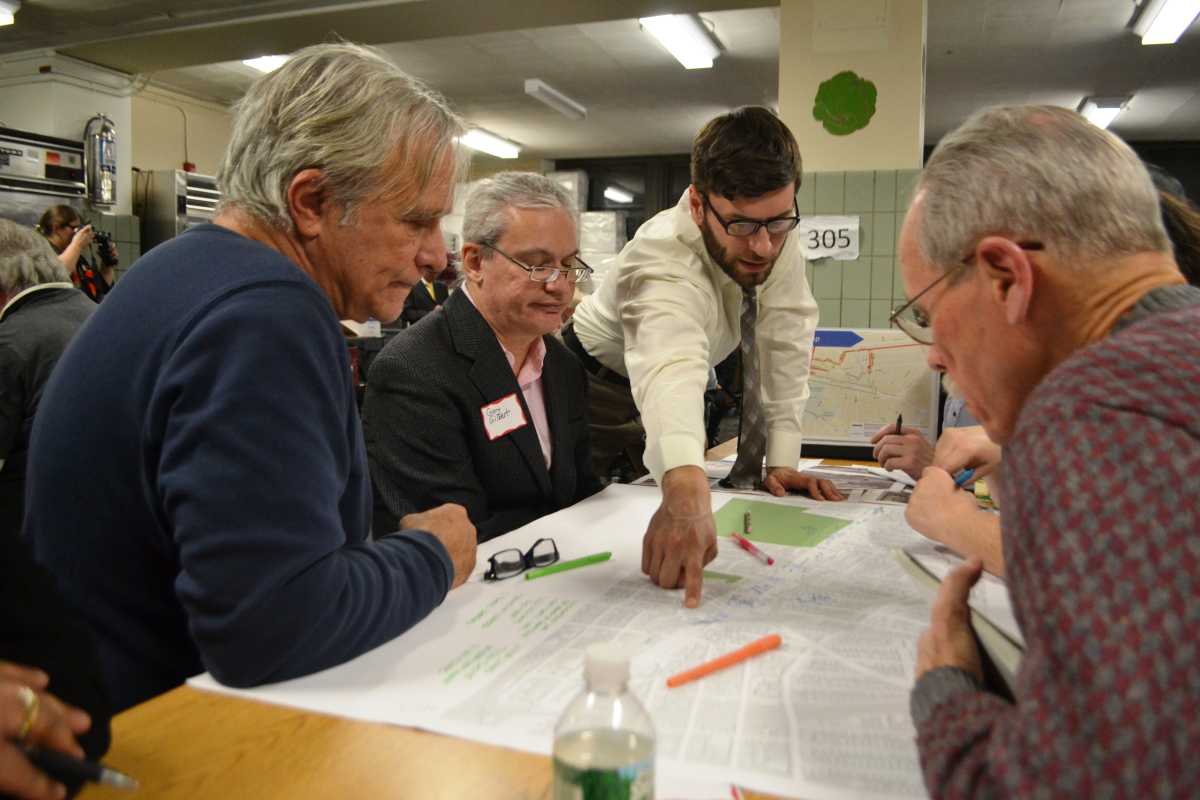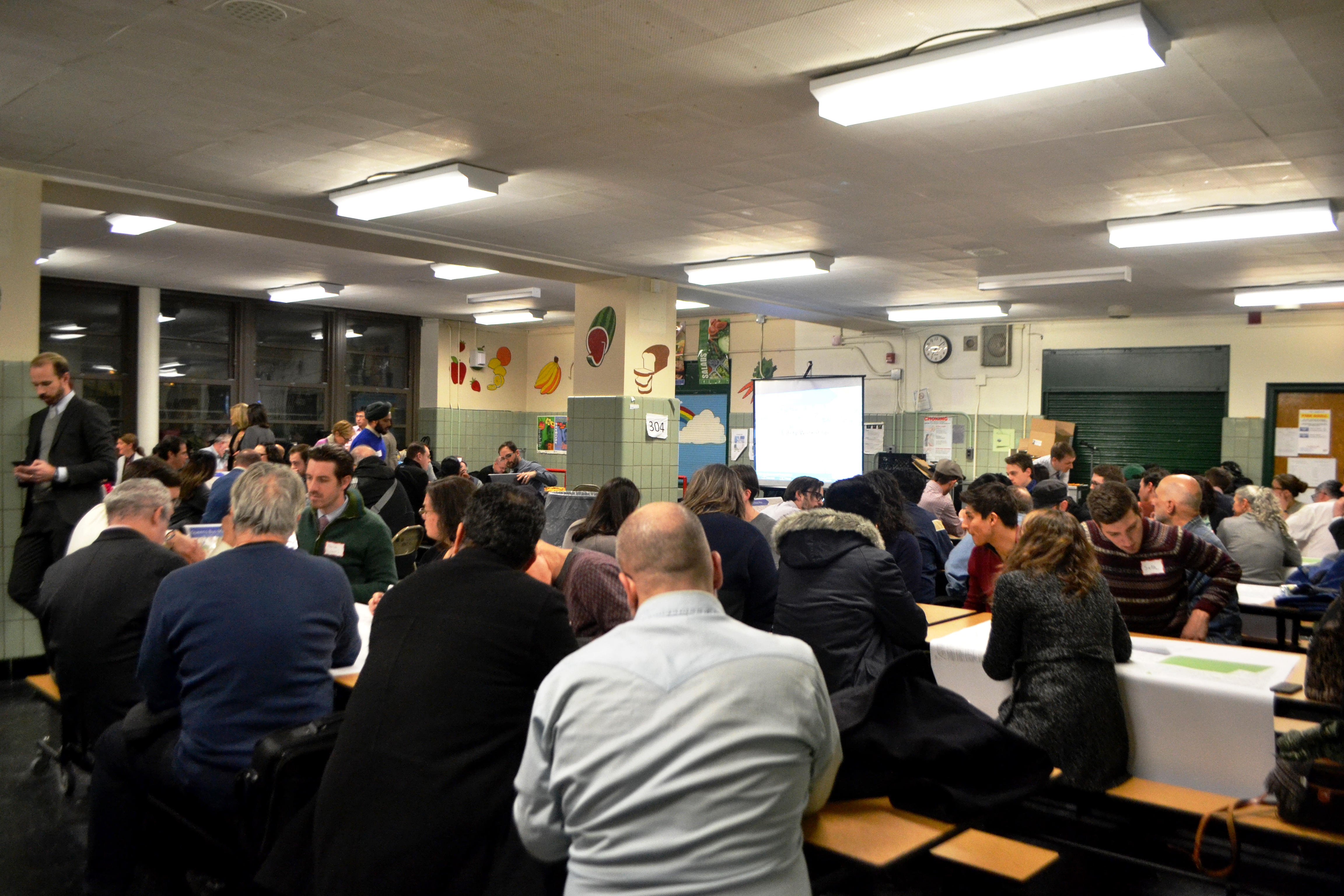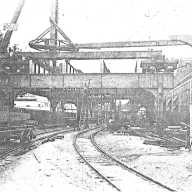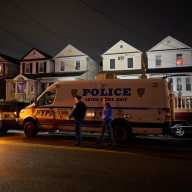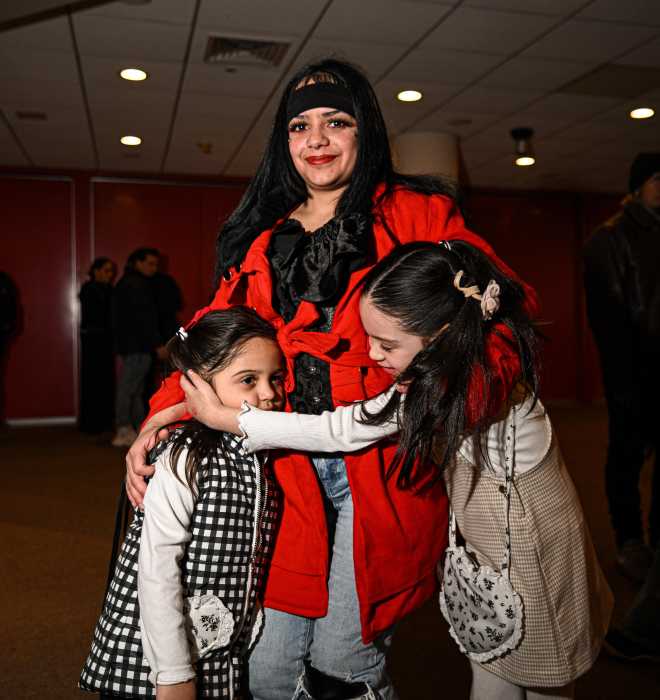Community officials, residents, family members of traffic accident victims and survivors got the chance Wednesday night to give their input on putting an end to fatal crashes on the “Boulevard of Death.”
The Department of Transportation held the first Queens Boulevard Safety Workshop at P.S. 11 in Woodside to discuss the future of a stretch of the busy thoroughfare between Roosevelt Avenue and 73rd Street.
The agency said it decided to focus on this section first because statistics show there have been six fatalities since 2009 in that particular area. Last year, the speed limit on Queens Boulevard was lowered to 25 mph as part of the city’s Vision Zero initiative.
“The Mayor made it clear that improving Queens Boulevard is a priority and so Wednesday night NYCDOT will host a safety workshop to hear the community’s concerns and ideas,” DOT Commissioner Polly Trottenberg said. “That workshop is only the first step in a more comprehensive process to reimagine and redesign the boulevard as a safer, greener, more attractive corridor for residents and businesses.”
During the workshop, over 100 members of the public were able to sit down with DOT facilitators in groups at several tables in the school’s cafeteria. The agency’s representatives then went over the options for improvements that can be done on the thoroughfare and asked that each person draw on a map of Queens Boulevard, provided at each table, any suggestions they have.
Among those present were members of Families for Safe Streets, made up of a group of family members of victims of traffic accidents and survivors.
“We’re really asking for them to take a really bold stand and do a complete redesign of Queens Boulevard,” said Ellen Foote, a member of Families for Safe Streets whose 27-year-old son was killed while riding his bicycle home. “We want to turn the ‘Boulevard of Death’ to the ‘Boulevard of Life.’”
Foote added that with the popularity of Queens increasing, she sees Queens Boulevard as the place to start making changes. She urged the DOT to take the community’s input and statistics and come up with a plan.
“We should make it a model not just for New York City, but the world,” Foote said.
Among the suggestions voiced by the public were creating protected bike lanes and dedicated bus lanes, making street medians longer and wider, adding street regulations to reduce speeding, and increasing the amount of time to cross Queens Boulevard.
Ralph Munoz, a Kew Gardens resident who lost both his mother and brother to traffic accidents, in separate incidents, sees the workshops as positive moves to making the streets safer. He added that he sees many cars speeding near where he lives.
“The [speed limit] law is new. People need to learn. It takes time. But if people want to do it, they can be a very responsible driver. People just need to be more responsible with their car,” Munoz said. “It’s a discipline and it’s a change to keep people safe.”
Munoz is a new member of Families for Safe Streets and says he plans to attend future workshops for Queens Boulevard, especially for the stretch of the strip near where he lives.
“It’s good to be involved and helping with this type of thing because you don’t want other families to go through this,” Munoz said.
The DOT will now take the input from the workshop and use it to come up with recommendations for Queens Boulevard. There are also plans for future workshops for the road.
RECOMMENDED STORIES

